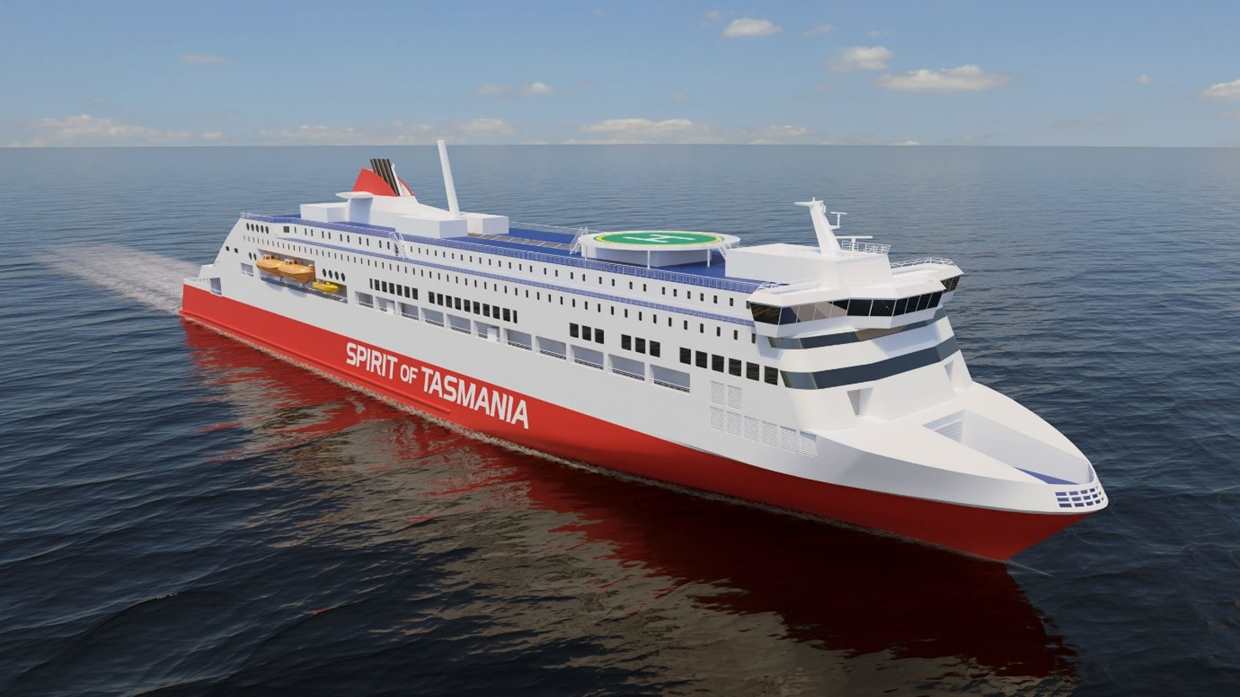Kongsberg Maritime (KM) announced on Thursday (Oct 07) a contract with Finnish shipyard Rauma Marine Constructions (RMC) to deliver propulsion and steering equipment for two new car and passenger ferries. The vessels will be operated by the Australian company TT-Line for the regular Spirit of Tasmania ferry service – a 10.5-hour journey across the Bass Strait between Melbourne, Victoria and Devonport, Tasmania.

Each vessel will be fitted with two of KM’s Promas combined propulsion and steering systems, which integrate the rudder and controllable pitch propeller to provide highly efficient thrust and manoeuvrability. KONGSBERG prides itself on its hydrodynamic technology, and prior to the contract signing undertook advanced computational fluid dynamic (CFD) analyses of the Promas units to establish cavitation properties and ensure optimal performance at the vessels’ 26-knot cruising speed. Manoeuvrability when docking is further aided by four TTC tunnel thrusters, the latest design from KM.
“We’re delighted to sign this contract with Kongsberg Maritime,” said Jyrki Heinimaa, President & CEO, Rauma Marine Constructions. “The deciding factor was the long and successful relationship between RMC and KM. They have delivered propulsion equipment to many of our vessels in the past, and we know that they are a reliable partner who will provide excellent support, both now and during the vessels’ lifetime.”
With an approximate gross tonnage of 48,000 tons, each new ferry will accommodate 1,800 passengers. They will replace Spirit of Tasmania I and II, which have been reliably driven by KONGSBERG Kamewa propellers and tunnel thrusters since their construction in Finland in 1998.
“Choosing KM equipment for this project is a gratifying vote of confidence from both RMC and TT-Line,” said Göran Grunditz, Manager Hydrodynamics, Propulsion & Engines, Kongsberg Maritime. “Since we equipped the previous vessels more than 20 years ago, we have worked hard developing increasingly efficient and manoeuvrable propulsion solutions as part of our ongoing work at our Hydrodynamic Research Centre in Sweden. We are confident that the Promas system fitted to these vessels will not only deliver the same reliability, but also significantly improve performance, efficiency and manoeuvrability.”
The first vessel is scheduled to be delivered to TT-Line in late 2023, with the second following a year later.